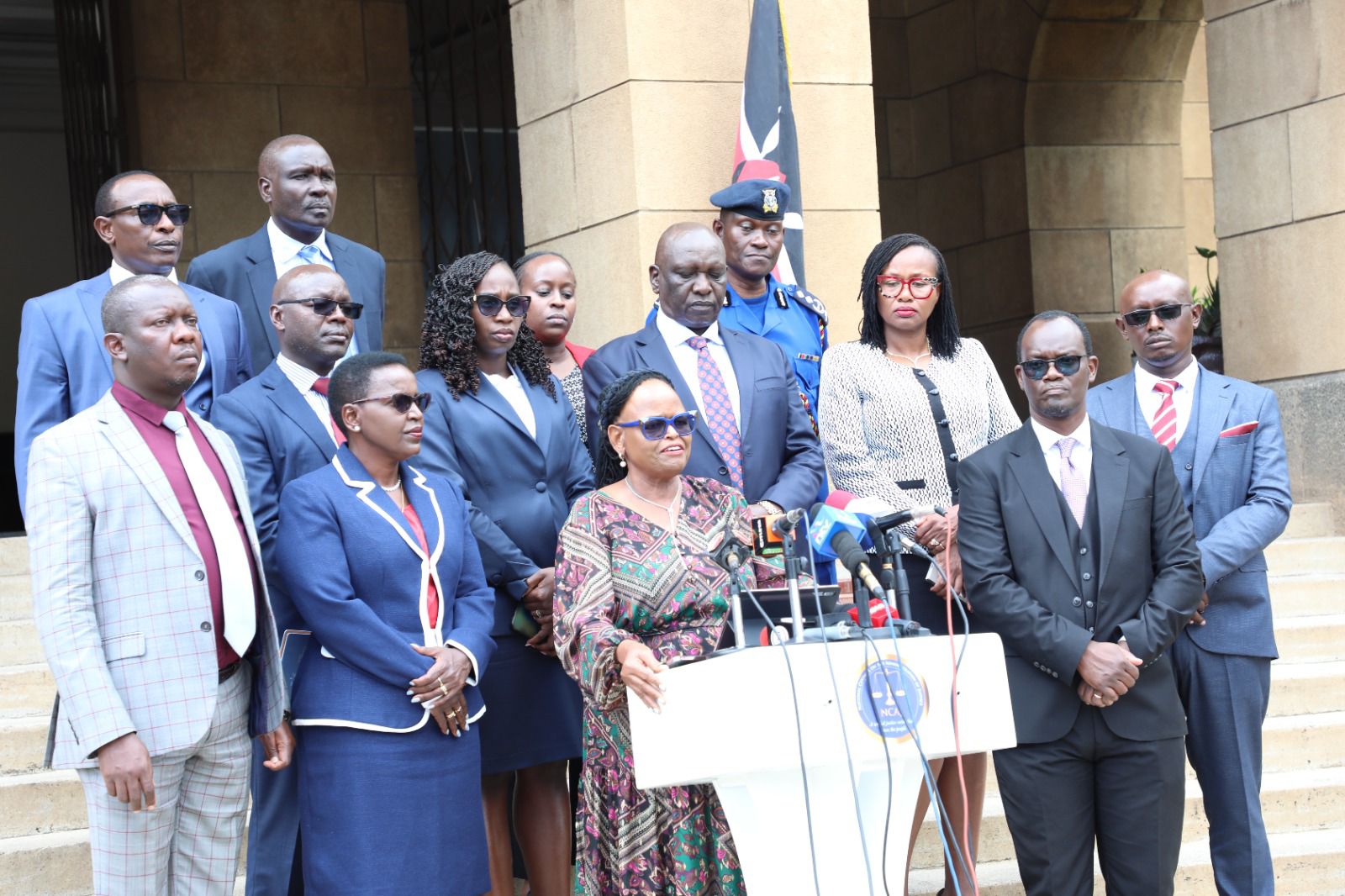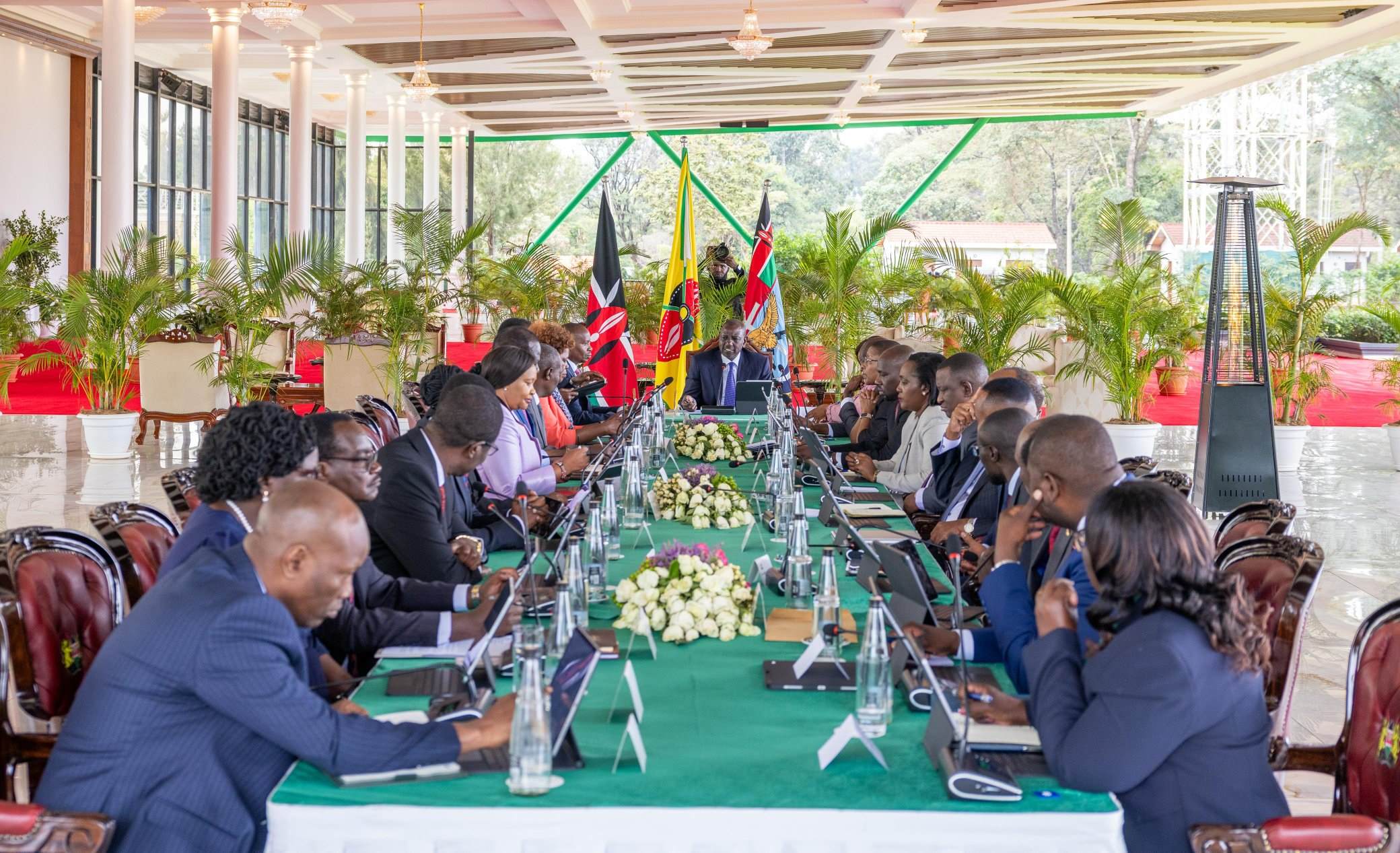National Registration Bureau clears 600,000 ID backlog, digitises 16 million records

As part of its modernisation efforts, the NRB also invested in two new printers and live capture units to replace outdated manual processes.
The National Registration Bureau (NRB) has cleared a backlog of over 600,000 national identity card applications in 2024, according to the Ministry of Interior.
The State Department of Immigration and Citizen Services, which is under the ministry, noted that the NRB's efforts to modernise its systems and reduce the national ID backlog were successful, with more than 1,778,773 million ID cards printed during the period under review.
More To Read
- 26 arrested in crackdown on criminal network illegally issuing government documents
- Government tightens ID registration checks after scrapping vetting process
- Interior Ministry says cyberattack on state websites contained as experts cite extremist motive
- Huduma Kenya urges citizens to collect thousands of unclaimed documents
- Africa lags in ID cards coverage as experts urge inclusive access
- PS Belio Kipsang urges use of e-Citizen, warns against cash payments
"The National Registration Bureau played a critical role in strengthening Kenya's digital identity infrastructure, including the rollout of the Maisha ecosystem," the ministry said.
The Maisha ecosystem includes the Maisha card, a unique personal identifier, a digital version of the Maisha card, and an integrated database that serves as a one-stop authentication register for all Kenyans.
As part of its modernisation efforts, the NRB also invested in two new printers and live capture units to replace outdated manual processes.
Digital transitions
These upgrades were essential in reducing the backlog and meeting the demand for national IDs, especially as Kenya prepares for digital transitions in governance.
In August, the government disclosed that 180,000 national identity cards remained uncollected at various Huduma centres across the country.
In addition to the uncollected IDs, 47,000 driving licenses and 54,000 birth certificates are also awaiting collection. The NRB has urged Kenyans to pick up the piled-up documents.
Between August 12 and 26, 2024, the NRB production centre received an additional 108,697 national ID card applications, adding to the growing backlog.
By August 26, 2024, a total of 476,167 printed national ID cards had not been collected from NRB registration offices and Huduma centres countrywide.
In addition to clearing the ID backlog, the NRB expanded its services significantly in 2024. It registered approximately 900,000 first-time applicants, including students eligible for transition to tertiary institutions.
The bureau also opened 54 new grassroots offices under the Civil Registration Services, aiming to improve access to ID registration across the country.
Another notable development in 2024 was the Directorate of Refugees' introduction of the "Shirika Plan". This initiative proposes converting refugee camps into integrated settlements that benefit both refugees and host communities.
In April, Parliament approved the new Refugee Regulations 2024, paving the way for the full implementation of the Refugee Act, 2021 that guides the implementation of the government's Shirika Plan.
The Shirika Plan is the planned settlement of refugees in the communities in which they are hosted, that is in Turkana and Garissa counties, where they will be allowed to contribute to the economic development of their host communities.
Top Stories Today
















































